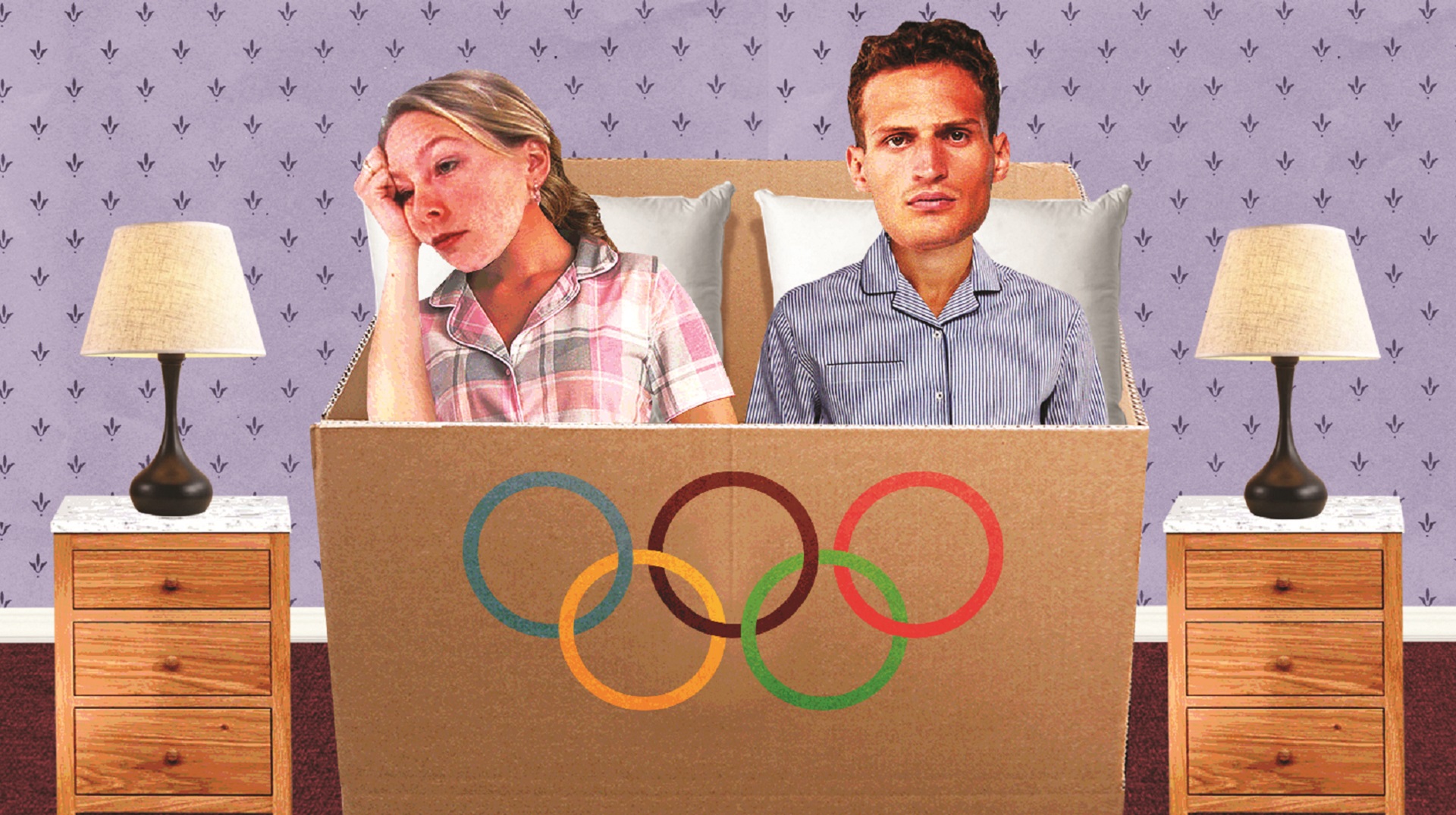https://twitter.com/Paulchelimo/status/1416240846039523331
He added: “Beds will be able to withstand the weight of a single person to avoid situations beyond sports.”
And the “anti-sex bed” theories soon translated into widespread media coverage.
The Sun covered the story with: “MATING MEDAL-LING: Tokyo Olympics using ‘cardboard beds’ that break if athletes have sex to stop Covid spreading in Olympic Village”.
Yahoo! also covered the story as: “Athletes at Tokyo Olympics ‘given anti-sex’ beds to limit spread of coronavirus”.
It also attracted coverage abroad, with Fox News and the New York Post both covering the story in the US. Both ran the headline: “Athletes to sleep on ‘anti-sex’ cardboard beds at Olympic Games amid COVID”.
Advertising helps fund Big Issue’s mission to end poverty
But is there any truth to the claims or should they be, ahem, debunked?
Facts. Checked
The decision to make the beds out of cardboard has nothing to do with dissuading sex among athletes, organisers have confirmed. The story has been widely rubbished by several media outlets – though original stories on the ‘anti-sex beds’ remain.
The New York Times, Japan Today, Sky News and the South China Morning Post are among the outlets who have run stories taking down the claim.
But all were inspired by some investigation work from Irish gymnast Rhys McClenaghan. He gave the beds the bounce test and concluded: “The beds are apparently meant to break at any sudden movements. It’s fake. Fake News!”
The official Olympics Twitter account thanked McClenaghan for “debunking the myth”.
Advertising helps fund Big Issue’s mission to end poverty
Manufacturer Airweave also claimed the beds are “sturdier than wood or steel” after finding the cardboard design could support up to 200kg. The manufacturer added that the mattress is designed in three blocks to allow athletes’ bodies to “fully relax and achieve deeper sleep”.
But the beds are designed to be sustainable, too, and this was something highlighted long before the games as part of an environmental push by organisers.
The Associated Press detailed the designs as far back as in January 2020 in the piece: “An Olympic First: Cardboard beds for Tokyo Athletes Village”. The 18,000 beds at the games will be recycled after the games though a piece on NPR published three weeks before the event questioned just how far the organisers’ green efforts go.
Either way, both stories called into question the accuracy of the ‘anti-sex’ angle before stories surfaced.
It could be argued the social media storm about the beds ties into a wider fascination with sex at the Olympic Village.
Just as at past games, organisers will give out 150,000 condoms at the Olympic Village in 2021. It’s an evergreen story that has greeted every new Olympics since 1988, when organisers gave out contraception as part of global efforts to combat Aids and HIV.
Advertising helps fund Big Issue’s mission to end poverty
That message has not changed in the current Covid-disrupted games even if the gesture gets tongues wagging about athletes hooking up at the Olympic Village.
While this story was quite quickly and easily debunked, the way in which it was reported – ignoring previous stories – and how stories were left to stand online afterwards leaves a lot to be desired.
Let’s hope this is the only viral story that comes out of a divisive Olympics in Tokyo.
Worth repeating
- 18,000 cardboard beds will be supplied to the Olympic Village
- 150,000 condoms will be given out at the Olympic Games
- 8,500 condoms were given out at Seoul’s 1988 Olympics, rising to 450,000 in Brazil in 2016 to combat the Zika virus (International Olympic Committee)









